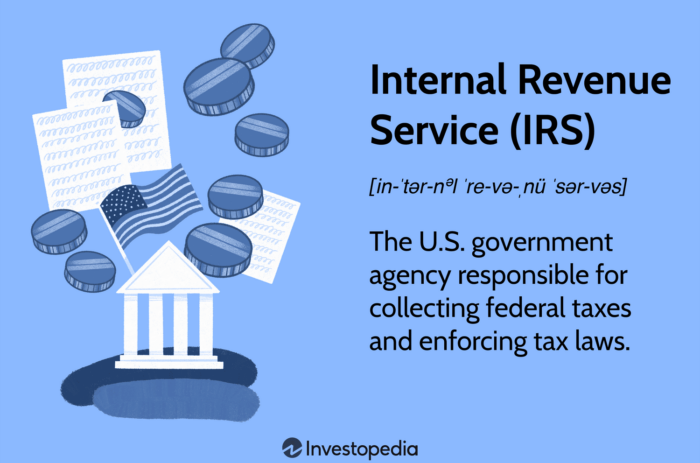
Legislatures in several states have required students to pass tests similar to those given to people seeking to become U.S. citizens. (File Photo Areipa.lt/Shutterstock)
redo Jump to...
print Print...
(by Jessie Higgins, UPI) EVANSVILLE, Ind. — Indiana lawmakers are considering a bill that would require all high school students in the state to pass the United States citizenship test to graduate.
This kind of legislation has become a growing trend in states across the country. At least 13 have enacted similar laws since 2015, including Arizona, North Dakota and Kentucky.
The impetus behind the proposed law, some elected officials said, are recent surveys of Americans — especially young Americans — that show a striking lack of knowledge about how the U.S. government functions.
A 2016 study by the University of Pennsylvania, for example, showed that only 26 percent of people could name all three branches of government. And nearly one-third could not name a single branch.
“I think we’re losing out a generation of people,” said Sen. Dennis Kruse, a Republican who drafted the Indiana bill. “We just don’t have people with common knowledge of our government systems anymore — and where we came from.”
Kruse, who is 72, said he remembers civics being an important part of his elementary and high school education. But, at some point, it stopped being taught.
“Somehow, our people today are not getting it,” he said.
… The Joe Foss Institute, and others like it, began pushing for civics education in 2014. And they support bills like the one now before Indiana lawmakers that require students sit for the same test immigrants take to become citizens.
For example, multiple-choice questions ask what Benjamin Franklin is famous for and what two rights in the Declaration of Independence are.
“Our goal is to shine a big bright light on civics and bring it back into schools so it’s taught, funded and tested,” Sparato said. “The citizenship test is a good place to start.”
… S.B. 132 passed the Senate on Jan. 24 with a 31-17 vote. It is awaiting a hearing in the House.
Published at UPI .com on February 8. Reprinted here for educational purposes only. May not be reproduced on other websites without permission from United Press International.
Questions
1. The first paragraph of a news article should answer the questions who, what, where and when. List the who, what, where and when of this news item. (NOTE: The remainder of a news article provides details on the why and/or how.)
2. a) For what reason have lawmakers proposed this bill? Be specific.
b) How did the bill’s author, Republican Sen. Dennis Kruse, explain the reason for the proposed bill?
3. How many other states have enacted similar laws in the past several years?
4. What needs to happen for the bill to become law in Indiana?
5. a) Is the study of Civics part of your state’s required social studies curriculum?
b) What is civics?
c) Why do you think it is important to have an informed citizenry?
6. UPI also reports: The Indiana state Democrats said the bill “would do nothing beyond adding to the long list of exams that students already must pass to graduate.” They also expressed concern that it would lower graduation rates for the state.
Do you agree or disagree? Explain your answer. If you agree, what suggestion do you have for schools ensuring that students have a strong understanding of how the U.S. government works?
CHALLENGE:
a) Read the 100 questions people need to know to pass a citizenship test. Is this information that you are already being taught (or have already learned)?
b) Take the sample test under “Background” below. How many answers did you get right?
Challenge a grandparent to take the test also. Compare your scores.
Background
SAMPLE – Practice test (from: www.uscis.gov)
The naturalization self-test is a study tool to help you test your knowledge of U.S. history and government. The actual civics test is NOT a multiple choice test. The civics test is an oral test. During the naturalization interview, up to 10 questions are asked from the list of 100 questions. Six out of ten questions must be answered correctly to pass the civics portion of the naturalization test.
This practice test contains 25 questions: [from: my.uscis.gov/prep/test/civics]
1. How many justices are on the Supreme Court?
nine (9)
eleven (11)
twelve (12)
ten (10)
2. Who lived in America before the Europeans arrived?
Canadians
Floridians
no one
American Indians
3. What do we call the first ten amendments to the Constitution?
the Bill of Rights
the inalienable rights
the Articles of Confederation
the Declaration of Independence
4. Under our Constitution, some powers belong to the states. What is one power of the states?
coin or print money
create an army
make treaties
provide schooling and education
5. What did Susan B. Anthony do?
fought for women’s rights
the first woman elected to the House of Representatives
made the first flag of the United States
founded the Red Cross
6. What happened at the Constitutional Convention?
The Virginia Declaration of Rights was written.
The Constitution was written.
The Declaration of Independence was written.
The Emancipation Proclamation was written.
7. What are two rights of everyone living in the United States?
freedom to petition the government and freedom to disobey traffic laws
freedom of speech and freedom of worship
freedom of worship and freedom to make treaties with other countries
freedom of speech and freedom to run for president
8. What ocean is on the East Coast of the United States?
Arctic Ocean
Indian Ocean
Pacific Ocean
Atlantic Ocean
9. Name one American Indian tribe in the United States.
Celts
Zawi Chemi
Cherokee
Slavs
10. Name one branch or part of the government.
legislative
parliament
United Nations
state government
11. Who does a U.S. Senator represent?
the state legislatures
all people of the state
only the people in the state who voted for the Senator
all people of the state who belong to the Senator’s political party
12. Who vetoes bills?
the Speaker of the House
the Vice President
the President Pro Tempore
the President
13. What are the two major political parties in the United States?
Reform and Green
Democratic-Republican and Whigs
Democratic and Republican
American and Bull-Moose
14.What is freedom of religion?
You must choose a religion.
No one can practice a religion.
You can practice any religion, or not practice a religion.
You can’t choose the time you practice your religion.
15. The Federalist Papers supported the passage of the U.S. Constitution. Name one of the writers.
George Washington
James Madison
Thomas Jefferson
John Adams
16. What are two Cabinet-level positions?
Secretary of the Interior and Secretary of History
Secretary of Health and Human Services and Secretary of the Navy
Secretary of Weather and Secretary of Energy
Secretary of Homeland Security and Secretary of the Treasury
17. Name the U.S. war between the North and the South.
the Revolutionary War
the War of 1812
World War I
the Civil War
18. How old do citizens have to be to vote for President?
thirty-five (35) and older
twenty-one (21) and older
sixteen (16) and older
eighteen (18) and older
19. If the President can no longer serve, who becomes President?
the President Pro Tempore
the Secretary of State
the Speaker of the House
the Vice President
20. What is the capital of the United States?
Philadelphia, PA
Washington, D.C.
New York, NY
Boston, MA
21. Name one state that borders Mexico.
Alabama
California
Arkansas
Florida
22. Who is in charge of the executive branch?
the Prime Minister
the Speaker of the House
the Chief Justice
the President
23. What is the name of the national anthem?
God Bless the U.S.A.
My Country Tis of Thee
America the Beautiful
The Star-Spangled Banner
24. Who was President during the Great Depression and World War II?
Herbert Hoover
Franklin Roosevelt
Harry Truman
Calvin Coolidge
25. Under our Constitution, some powers belong to the federal government. What is one power of the federal government?
to make treaties
to issue driver’s licenses
to provide schooling
to provide police departments
Resources
Take a practice multiple choice test at the U.S. Citizenship & Immig. Services website (NOTE: The actual civics test is NOT a multiple choice test. During the naturalization interview, a USCIS officer asks up to 10 questions from the list of 100 questions in English. Applicant must answer 6 of the 10 questions correctly to pass the civics test.)
For the “100 Civics Questions and Answers with audio: uscis.gov
From the Joe Foss’ Civics Education Initiative website: “Here Are 12 Facts Every High School Kid In US May Need To Know”
Read a 2011 editorial “Who Cares About American History?”
Daily “Answers” emails are provided for Daily News Articles, Tuesday’s World Events and Friday’s News Quiz.



